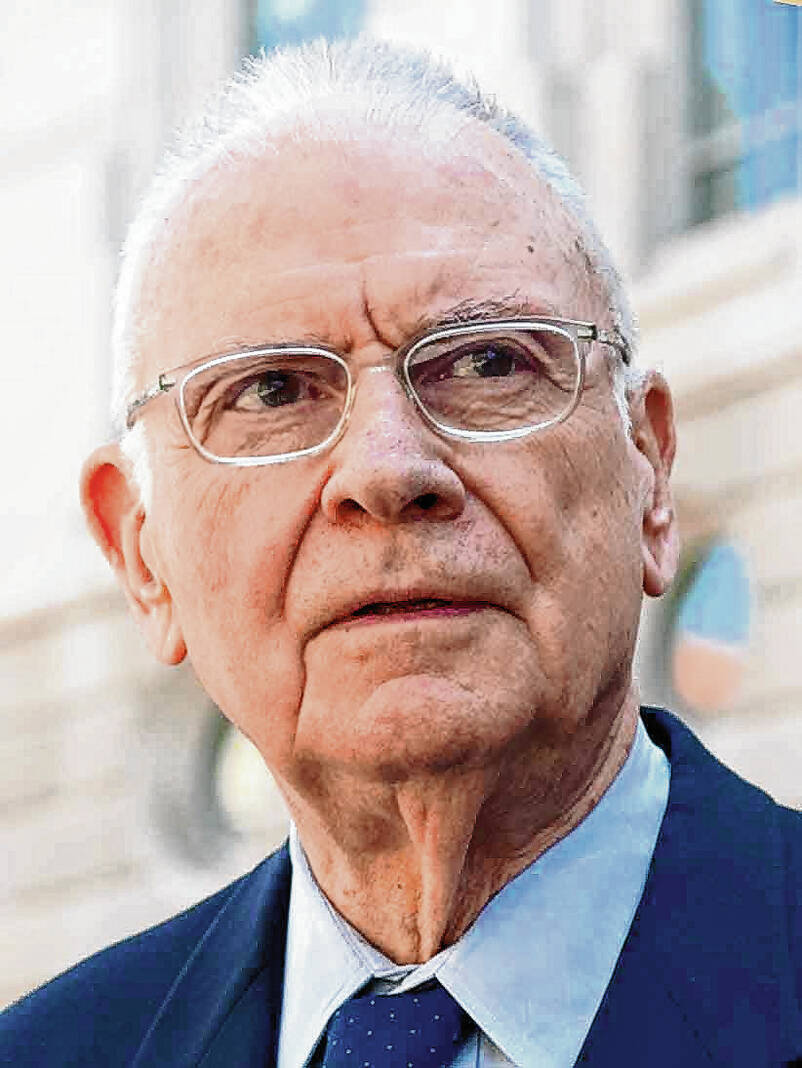
Lee Hamilton
Americans are pessimistic about our democracy, according to a recent poll.
It’s a worrisome finding. Of course, it’s easy to watch the news and conclude our government isn’t working. But we must not get to the point where we think we can’t solve our problems in a democratic fashion. That’s a danger line.
The poll, by The Associated Press-NORC Center for Public Affairs Research, found that majorities of American adults don’t think our laws and policies represent what most people want. Only about 1 in 10 gave high ratings to democracy for working well. Disturbingly, 53% said Congress does a poor job of upholding democratic values, while only 16% said it does a good job. That’s hardly a show of faith in the representatives we have elected.
Another poll, by the Marist Center, found 8 in 10 Americans believe democracy is under threat, but they disagree over who’s at fault: Half blame Democrats, and half blame Republicans. Finally, the long-running Pew election survey found trust in government at a near-record low. Only 20% of Americans trust the government to do the right thing all or most of the time.
The findings aren’t entirely surprising. Our politics are deeply polarized. Many Republicans don’t want anything to do with Democrats, and many Democrats feel the same about Republicans. Social media and partisan cable TV networks have divided us into warring tribes.
And we have come through a difficult period. The COVID-19 pandemic caused a million deaths, increased social isolation, strained trust in medical authorities and gave rise to conspiracy theories. It pummeled the economy and drove millions from the workforce. Employment bounced back, but with it came the highest inflation in 40 years. Now inflation is down, but many Americans aren’t confident they can pay their bills. They give President Joe Biden low marks for his handling of the economy.
You would think Congress would work together to address these concerns. Instead, it seems to be bogged down in partisan stalemates. Gerrymandering of congressional districts has pushed Republicans to the right and Democrats to the left. There’s little common ground.
Donald Trump’s false claim that the 2020 election was stolen further undermined faith in democracy. His attacks on election officials, the justice system and even the military — echoed by some of his political rivals — have weakened trust in government. Indictments charging Trump with mishandling classified documents and conspiring to overturn the election have outraged his supporters. As the Jan. 6, 2021, invasion of the Capitol showed, that kind of anger can be dangerous.
But it’s important to remember that the United States has come through extreme challenges in the past with our democratic principles intact. The Civil War ruptured the country and killed an estimated 750,000 people, North and South. In the 20th century, we survived two world wars, the Great Depression and the Cold War. And our democracy has grown stronger. At the nation’s founding, only white men who owned property could vote. Black Americans endured slavery followed by widespread segregation and disenfranchisement. Women didn’t gain the vote until the 20th Amendment was ratified in 1920.
Martin Luther King Jr. famously said the arc of the moral universe is long, but it bends toward justice. The same could be said for American democracy.
Americans are fundamentally a practical and optimistic people. We believe in progress, and we believe in our capacity to overcome challenges. Republican or Democrat, we want the same things. We want to live in a world that’s secure and prosperous. We want opportunity for ourselves and our children.
We need to maintain an underlying optimism about our ability to work together to solve problems. Democracy has served us well for nearly 250 years. It’s up to us to ensure it continues to thrive.
Lee Hamilton is a senior adviser for the Indiana University Center on Representative Government, a distinguished scholar at the IU Hamilton Lugar School of Global and International Studies and a professor of practice at the IU O’Neill School of Public and Environmental Affairs. He was a member of the U.S. House of Representatives for 34 years. Send comments to [email protected].
